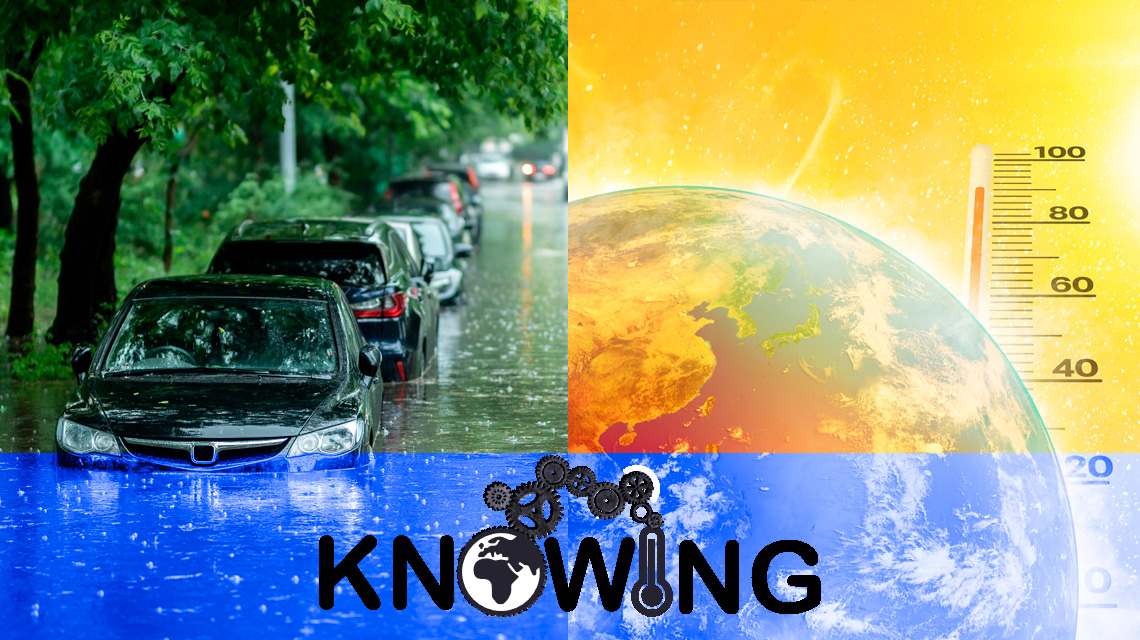Italian National Agency for New Technologies, Energy and Sustainable Economic Development

Climate: ENEA in EU project to combat floods and heat waves and safeguard soil fertility
Defining increasingly effective strategies for climate change mitigation and adaptation, safeguarding soil fertility and combating heat waves and floods is the goal of the European project KNOWING[1], funded by the Horizon Europe program with over 6 million euro, comprising 17 partners from 8 EU countries, including ENEA, Federico II University and the Naples Municipality for Italy. Naples will be one of the four international case studies in which the actions necessary to cope with coastal flooding risk caused to the rise in sea level and extreme weather events will be identified. The other 'lab' territories will be Tallinn (Estonia) for heat waves, Granollers (Spain) for river floods and the South Westphalia region (Germany) for soil fertility. The Vietnamese city of Ho Chi Min (the former Saigon) will also participate in the tests on the global transferability of the outcomes achieved.
“ENEA will process climate data with high spatial resolution, to be used in further hydrological and energy impact models; based on our regional climate models we will be able to obtain and provide increasingly accurate information, on a continental scale, on the atmospheric and oceanic variables crucial to the risks to study", explained Giovanna Pisacane, ENEA researcher at the Laboratory Climate modeling and impacts. “However, although climate models allow us to understand and evaluate the direct impact of climate change, there are uncertainties over the future climate impact on our lives and health, transportation, construction, agriculture and critical infrastructures, because we don't know how these elements will influence one another.
This uncertainty – pointed out the researcher - makes it harder to plan mitigation and adaptation policies and negatively affects the solutions implemented". That’s why the 'KNOWING' project will adopt an interdisciplinary approach based on natural and anthropic systems dynamics and on behavioral analysis, to identify and, where possible, follow realistic and effective mitigation and adaptation paths. “This will avoid adaptation measures to cause unforeseen effects in other areas or climate mitigation objectives to be jeopardized by adaptation measures with high climate-altering emissions”, said Pisacane.
The project will define communication strategies to involve administrators, citizens, businesses and associations, with the aim of raising "climate literacy", improve awareness of correlations and potential conflicts among the measures and, finally, increase consensus and support from public and private actors involved.
To date, numerous studies and field interventions have shown that the impact of adaptation and mitigation measures may result in cascading impacts across sectors and domains that can have unintended consequences and even go against the original intention. For instance, the construction of infrastructures or the production of technologies necessary to climate change adapatation can lead to an increase in CO2 emissions, putting mitigation strategies at risk, as well as behavioral factors, which often affect the implementation of with the expected outcome of the measures.
“Increased dermand for cooling during heat waves or the use of the car even for short trips contribute to boost energy consumption, polluting emissions and anthropic heat flow, responsible for the so-called urban heat islands.
As concerns agriculture, arid lands require crop diversification and in this case, instead of changing their eating habits, consumers buy imported products with the result of disrupting local economies and contributing to rising emissions due to an increased transportation of goods. We will focus on three fronts: progress in climate science, balancing adaptation and mitigation efforts with an integrated approach and behavioral change", said the ENEA researcher.
